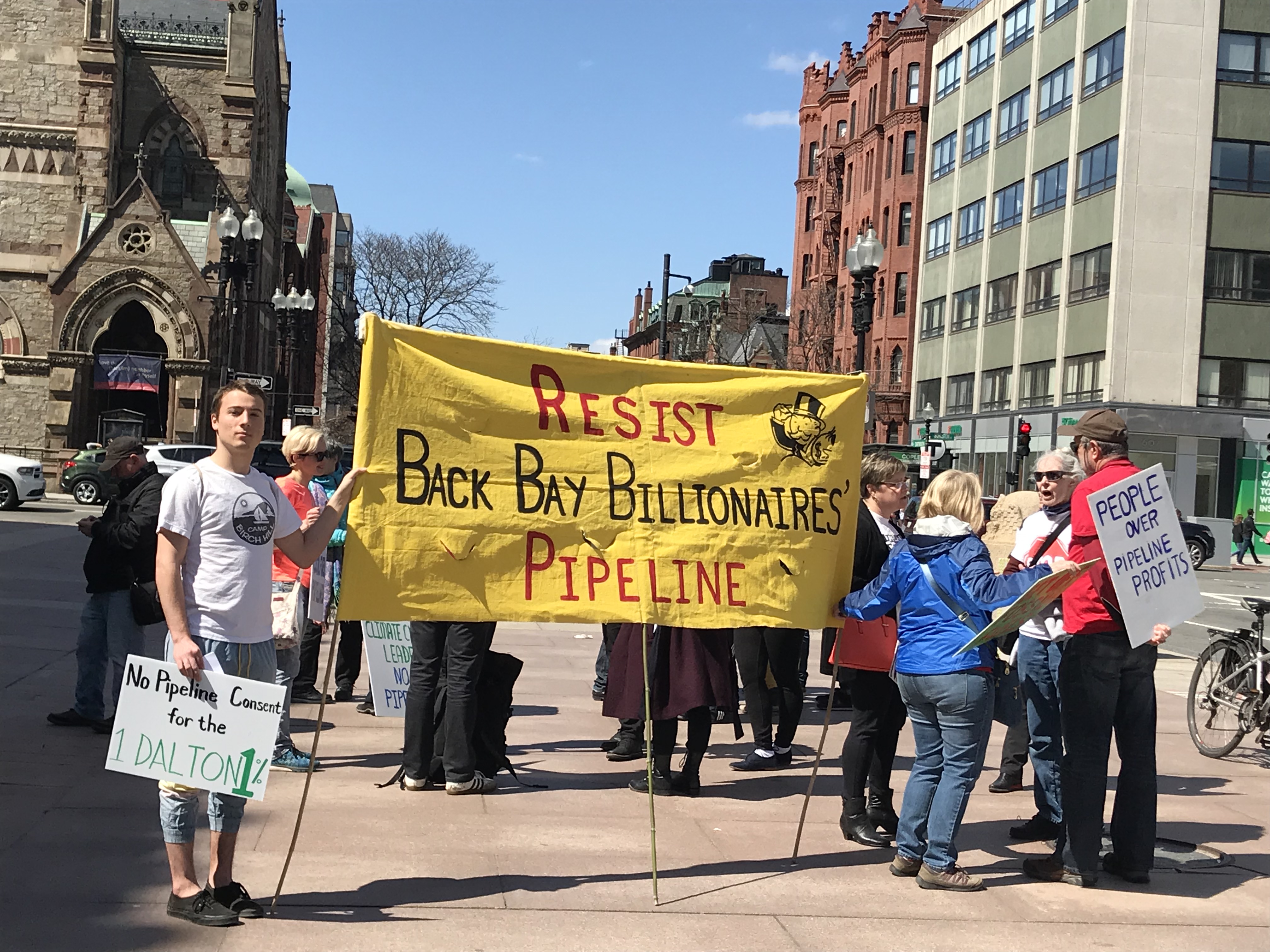On Saturday, April 21, over 100 protesters rallied against the construction of an incoming natural gas pipeline by marching from Boston Public Library to the base of 1 Dalton Street, a 742-foot skyscraper in the middle of Boston’s Back Bay.
The tower is the one known customer of a planned 4,100-foot National Grid pipeline, approved by the Boston Zoning Board in December, which would expand the volume of natural gas supplied to the neighborhood.
Many of the march’s organizers and participants had been active in the effort to deny the project approval at the city level. Their objective Saturday was to prompt serious discussion of climate change and energy policy and many of their signs were addressed to Mayor Martin Walsh.
“We want the mayor’s attention,” said James Michel, cofounder of Boston Clean Energy Coalition and one of the event’s main organizers. “This is a serious issue. We don’t want to be dismissed. We want to engage the mayor in a public conversation.”
A central part of that conversation would be Boston’s Climate Action Plan, which calls for a 25 percent reduction in carbon emissions by 2020 and carbon neutrality by 2050. Many protesters expressed doubt that either goal could be accomplished while the city’s natural gas infrastructure is expanded.
Greg Caplan, a member of the statewide volunteer group 350 Mass Action, held a sign reading “Boston Climate Action Plan = a joke” on one side and “Mayor Walsh fracks for billionaires” on the other. Caplan worries the Walsh administration will not follow through on its commitments to lower carbon emissions.
“The [political] strategy is to make ambitious plans of what you will do in the future,” he said. “Then, you just go out of office.”
Because the Back Bay pipeline will serve a building with average condominium prices of $6 million, it has made the climate crisis crystal clear, said Tim DeChristopher, cofounder of the environmental group, Peaceful Uprising.
“The fight against climate change has always been a fight against capitalism,” he said. “The economic exploitation of human beings has always gone hand in hand with the exploitation of our planet. We cannot fight one without the other.”
Many of the day’s speakers came from nearby towns where they were engaged in their own local struggles. Wendy Graca from South Coast Neighbors United came from East Freetown where she is active in opposing Spectra Energy’s Access Northeast project. She expressed solidarity with similar environmentalist struggles in the state and the region.
“We stand with the Back Bay,” she said. “We stand with Weymoth. We stand with Lowell. We stand with Sharon. We stand with Rehoboth. We stand with Providence, Rhode Island. We stand with everyone and we’re in this fight together.”
The Boston Clean Energy Coalition organizes vigils once a week and larger events, like Saturday’s march, once a month, said Michele Brooks, community outreach coordinator for the Massachusetts Sierra Club.
Many of the coalition’s members engaged in civil disobedience during their struggle of the now-constructed West Roxbury Lateral pipeline two years ago. The group has begun training members to take similar action in the Back Bay, if the time comes.
“It hasn’t gotten to that point yet, but I have a feeling it will,” said Brooks.
Saturday’s event was not the time to discuss those actions, said Michel. He characterized that training as a “contingency plan,” or “last resort.” He feels the time is right for Boston’s transition to renewable energy, if the energy and political will is found.
The campaign against the Back Bay pipeline has some real juice in it, said Michel, but asked if he has seen any progress towards attracting the type of attention it needs from the mayor or city government he responded, “not really.”

Leave a Reply
You must be logged in to post a comment.